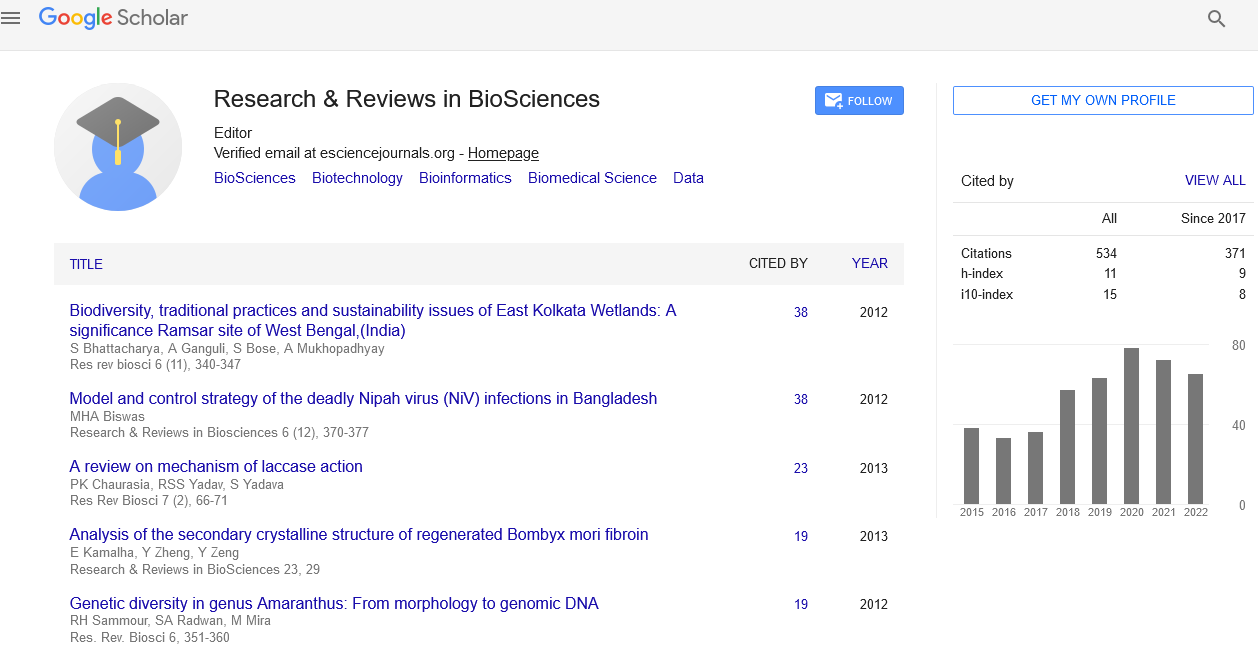Abstract
Evaluation of Gastric and Duodenal Antiulcer Activity of Ranitidine Formulation in Experimental Animals
Author(s): Somasundaram Ramachandran and Magharla Dasaratha DhanarajuThe present study involves the evaluation of controlled release formulation of Ranitidine for its gastric and duodenal antiulcer activity in rats as animal models. Gastric and duodenal ulcers were produced in rats by pyloric ligation method as described by ShayÂ’et al.[1] and aspirin induced ulcer in rats. The animals were divided separately for both experiments. In each method animals were divided into four groups of six animals each. Group 1 served as normal control in which the animals received only distilled water. Group II served as disease control in which the animals were maintained under same environmental conditions but surgical manipulations done like other groups. Group III received standard drug Ranitidine 50mg/kg orally. Group IV were received Ranitidine formulation respectively with a dose equivalent to Ranitidine 50mg/kg orally by means of suspension. The antiulcer activity of pyloric ligated and aspirin induced animals were correlated for the reduction in ulcer levels. Various parameters likemean volume of gastric secretion,mean pH,mean total acid and ulcer index were calculated and was concluded that the group received Ranitidine formulation exhibited significant antiulcer activity by bothmethods when compared to standard drug Ranitidine. The biopsy report of rat stomach of all the groups were analyzed and was found that rats which received Ranitidine formulation and standard Ranitidine showed good healing of ulcers when compared to disease control group of animals. The mean volume of gastric secretions,mean pH mean total acid and ulcer index for Ranitidine formulation treated group was calculated as 2.67ml, 5.59, 110mEq/l, and 1.74 respectively. From the results it can be concluded that Ranitidine formulation exhibited significant antiulcer effect and the histopathology report also supports and confirm its effect.
